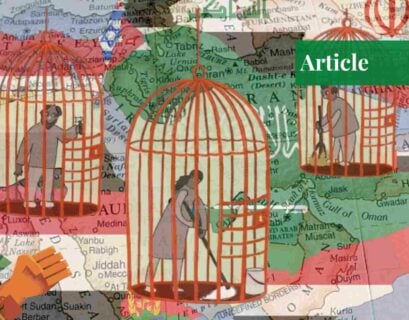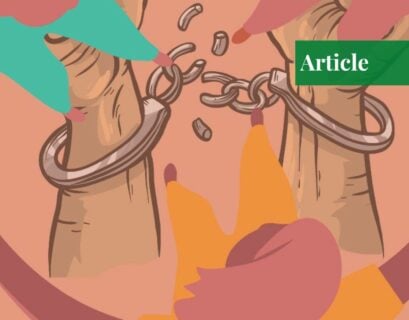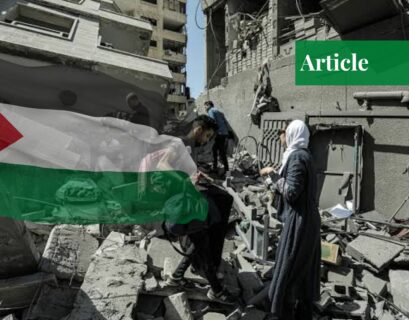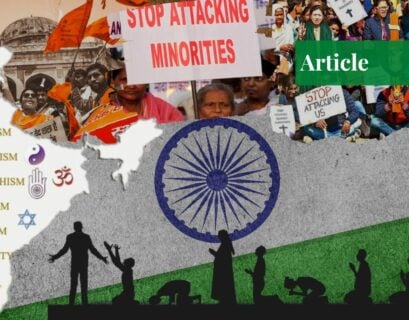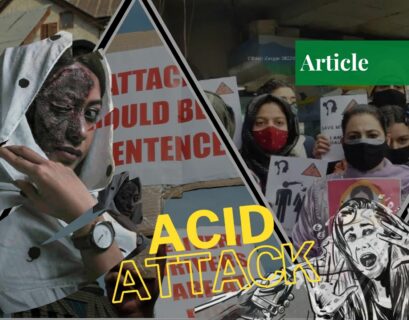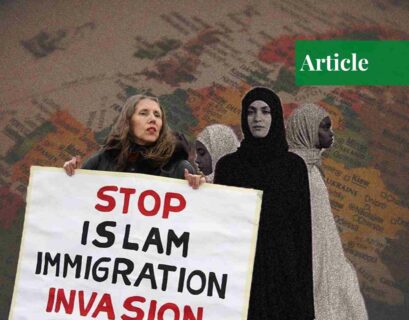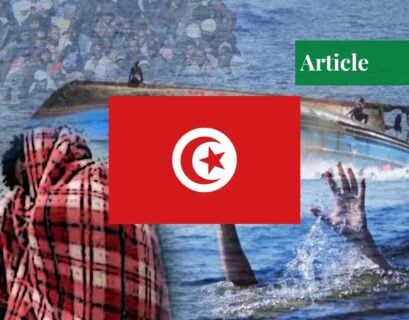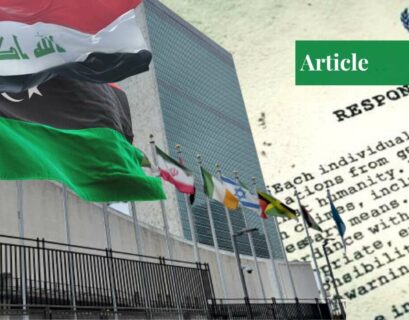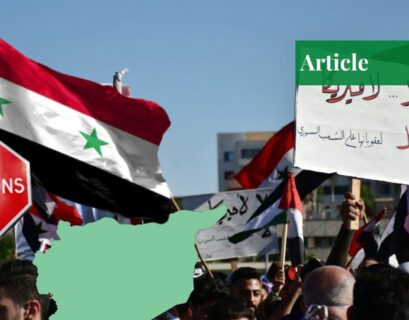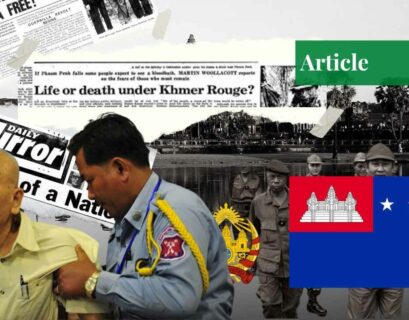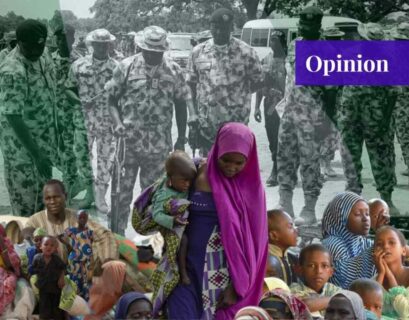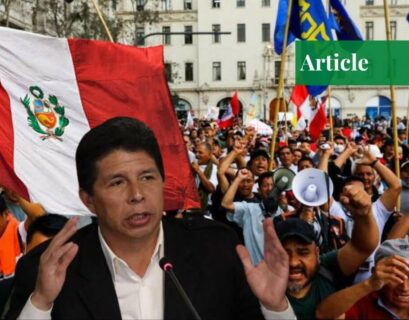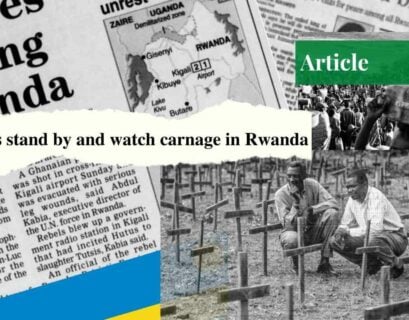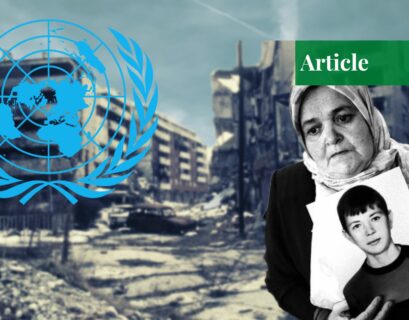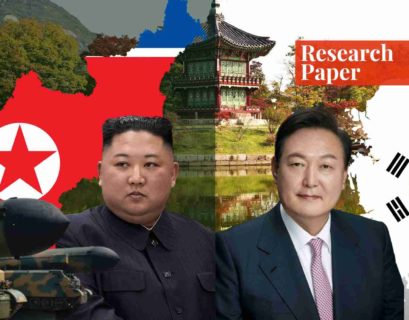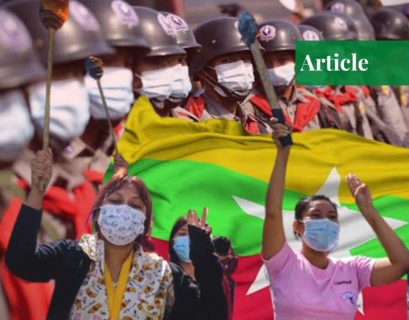Kafala System: Violating the Rights of Migrant Labor in the Middle East
Migrant labor plays a crucial role in the global workforce, contributing significantly to host countries’ economies.
However, they encounter various obstacles such as low pay, discrimination, and infringements of their labor and human rights, notably through the kafala system in the Middle East.
Khizra Rashad takes the example of Qatar’s FIFA World Cup controversy to illustrate the widespread mistreatment and exploitation experienced by migrant workers in many Middle Eastern countries.
A Brief History of “Zan, Zindagi, Azadi’’
Iranian women have inspired women all across the globe with their courage and resilience in the face of tyranny.
Their dilemma is extremely complex as they’ve fought against Reza Shah’s exploitation just to be betrayed by Khomeini’s promise of emancipation.
Undoubtedly, the freedom of Iranian women is indispensable for the liberation of Iranian society.
The Israeli Attacks in Gaza: Assessing the Humanitarian Implications
The ongoing Israel-Gaza War has plunged the people of Gaza into widespread devastation. Israel’s relentless bombings have resulted in a humanitarian crisis, with thousands of Palestinians killed and injured. Half of Gaza’s population comprises children, who are now bearing the brunt of the conflict.
Gaza no longer has any safe spaces, and even its hospitals are not immune to Israeli attacks. With no access to food, water, electricity, and shelter, the future of Gaza seems bleak if the current situation persists.
Rise of Hindu Nationalism: A Threat to Religious Minorities
Considering its diverse population, India decided on secularism for the country, but even with that feature, the religious minorities have faced persecution and are anything but safe and free.
From the records of religious intolerance present, it is safe to say that the rise of Hindu nationalism has been at the expense of the Muslims, Christians, and Sikhs of India.
Branded for Life: Acid Attacks in Pakistan
The cruel existence of acid crimes in Pakistan has influenced the lives of numerous victims. Pakistan’s legislative regime as well as cases regarding acid attacks have attempted to do their bit in curbing such attacks. Nevertheless, moving forward, the country needs to target grass-root problems that lie at the helm of such vile crimes against humanity.
Examining the Rising Islamophobic Sentiments in Europe
In recent years, Europe has witnessed a disheartening rise in Islamophobia, imposing far-reaching consequences on individuals, communities, and societies as a whole. Europe’s Islamophobic wave has led to Muslim communities experiencing an immense amount of discrimination, hate crimes, and marginalization. When it comes to Islam, freedom of speech has been reduced to an excuse for committing hate crimes.
Fatimah Naeem provides a comprehensive analysis of the causes and consequences of Islamophobia in Europe, and the responses to it. She aims to foster awareness and understanding of this multifaceted issue to encourage constructive dialogue and efforts towards a more tolerant and inclusive European society.
The Migration Crisis in Tunisia
The Republic of Tunisia, a North African country, has seen much despair over the past decade and has garnered much international recognition due to its vital role in the Arab Spring. Seen as the only state that fully turned over a new leaf and dedicated its efforts to a democratic future, it seemed that the country had a course chartered for progress and prosperity, but that soon went downhill.
Currently, Tunisia is going through a major humanitarian crisis that involves police brutality, cultural and structural violence, and blatant human rights violations, especially concerning migrants and refugees.
Declassified Diplomacy: Argentina and the US
The entire Carter administration disapproved of the human rights violations by the military junta within Argentina in the 1970s.
However, the declassified documents in the National Security Archive reveal that “quiet diplomacy” was used to maintain political ties with the military junta.
Instead of voicing his concerns in public, President Jimmy Carter chose to discuss the internal conflict with General Videla of the military junta in a private setting.
R2P and the US-NATO Intervention in Iraq and Libya
One of the United Nations’ most significant accomplishments in the history of humanitarian protection was the establishment of the Responsibility to Protect (R2P) doctrine, which aims to stop future mass atrocities in conflict zones and unstable circumstances.
However, this doctrine, which is largely the responsibility of the member-states under the auspices of the supra-national organization, has over the years been used to advance individual state strategic interests in Libya and Iraq.
As a result of the member states’ continued abuse of the doctrine under the guise of humanitarian intervention, it is imperative to assess the doctrine and the legitimacy of these so-called humanitarian interventions in the name of averting mass atrocities.
How Western Sanctions Are Worsening the Humanitarian Crisis in Syria
Labeled a ‘state sponsor of terrorism’ in 1979, Syria has been experiencing severe economic sanctions by the West since then. The sanctions are renewed every year, and all US Presidents have been renewing them (& adding to them) without fail.
The problem is that over half of the 21 million Syrians that lived in the country before the war have been displaced. Western Sanctions and Bashar’s obstinacy mean that Syrians are continually getting crushed by inflation, broken infrastructure, & the lack of access to basic humanities.
The question is, when will the suffering of the Syrian people end?
The Conclusion of the Khmer Rouge Trials
The ‘Khmer Rouge’ was a political group in Cambodia, which was also called the Kampuchea Communist Party. The Khmer Rouge led Cambodia from 1975 to 1979, coming into power on April 17, 1975. They used the tactics of guerilla warfare and ended up labeling the country as “Democratic Kampuchea”.
The Extraordinary Chambers in the Court of Cambodia (ECCC), an international genocide tribunal, was set up to convict the three men responsible for the crimes of the regime. The ECCC upheld the conviction of the regime’s last surviving leader, Khieu Samphan, ending 16 years of hearings.
Nigerian Military vs Boko Haram: The Costs of Civilian Harm
Nufaisa Garba Ahmed primarily sets out to examine the nature and character of the protection of civilians in armed conflicts. In doing so, she brings to the fore some of the grave violations against the civilian population by the Nigerian military in the fight against the Boko Haram Terrorist Group (BHTG) in Nigeria’s Northeast, as reported by credible news outlets.
The aim of this opinion piece is to bring to light some of the salient issues of civilian protection and proffer some good practices and lessons to be adopted for more credible and transparent operations by the military in armed conflicts.
A Look at the Ongoing Protests in Peru
A nationwide insurrection has engulfed Peru since early December, following the arrest and imprisonment of the country’s former president, Pedro Castillo.
The violent confrontation between the Peruvians and the security forces has entered the eighth week, culminating in the death of 60 civilians – and counting. What prompted these protests, and what lies ahead for Peru?
The Complexities of Humanitarian Intervention
Humanitarian intervention can be used as an instrument to manage the armed aspect of the conflict and lower the suffering of people by curbing violence. However, it is not as simple as it seems.
In international politics, a number of factors are involved for states to take action. Iman Faisal tries to shed light on the certain complexities of humanitarian intervention by taking the example of humanitarian intervention during the Rwandan Genocide.
The Bosnian Genocide: The UN’s Ultimate Failure
Nothing explains the United Nations’ peacekeeping failure better than the Bosnian War (1992-1995). Despite the presence of UN peacekeepers, the war culminated in one of the most horrendous massacres of all time—the Srebrenica massacre. The United Nations’ incompetence in preventing the genocide of the Bosnian Muslims, and the great powers’ hesitance to intervene cost the world the lives of more than 100,000 Bosniaks.
The Sociopolitical Freedoms in North & South Korea
There is a marked difference in the political systems of South Korea and North Korea, but human rights issues prevail in both countries. The paper analyzes certain laws that limit freedom in South Korea, and the overall political system in North Korea. Momina Munir Khan concludes that both countries limit individual autonomy in terms of freedom of choice and expression, but the framework of South Korea is still lenient. North Korea, however, has designed its system through mass internalization, to limit the freedom of any sort – humanitarian, social, and political.
Myanmar Executions: Four Activists Killed by the State
The recent execution of four pro-democracy activists in Myanmar is the first time in decades that the state has handed out the death penalty. Myanmar’s military government has received backlash and criticism from human rights activists and the international community for its unjustified acts of terror. Maryam Ibrahim notes that even the threat of losing their lives has not deterred the supporters of democracy in Myanmar from raising their voices.
